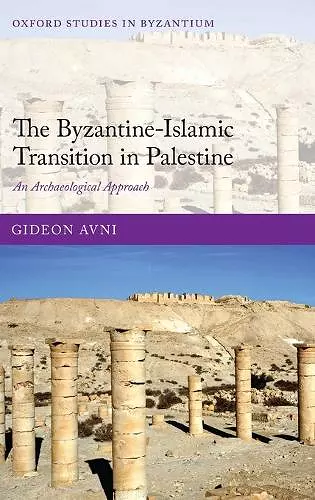The Byzantine-Islamic Transition in Palestine
An Archaeological Approach
Format:Hardback
Publisher:Oxford University Press
Published:30th Jan '14
Currently unavailable, and unfortunately no date known when it will be back

Using a comprehensive evaluation of recent archaeological findings, Avni addresses the transformation of local societies in Palestine and Jordan between the sixth and eleventh centuries AD. Arguing that these archaeological findings provide a reliable, though complex, picture, Avni illustrates how the Byzantine-Islamic transition was a much slower and gradual process than previously thought, and that it involved regional variability, different types of populations, and diverse settlement patterns. Based on the results of hundreds of excavations, including Avni's own surveys and excavations in the Negev, Beth Guvrin, Jerusalem, and Ramla, the volume reconstructs patterns of continuity and change in settlements during this turbulent period, evaluating the process of change in a dynamic multicultural society and showing that the coming of Islam had no direct effect on settlement patterns and material culture of the local population. The change in settlement, stemming from internal processes rather than from external political powers, culminated gradually during the Early Islamic period. However, the process of Islamization was slow, and by the eve of the Crusader period Christianity still had an overwhelming majority in Palestine and Jordan.
In The Byzantine-Islamic Transition in Palestine: An Archeological Approach, Gideon Avni provides a synthesis of current knowledge on the archaeology of Palestine and Jordan in the period from the sixth to eleventh centuries ... Avni provides a huge service to other scholars in bringing together a large amount of recent, specialist material in an accessible format. * Phil Booth, American Historical Review *
ISBN: 9780199684335
Dimensions: 241mm x 163mm x 31mm
Weight: 906g
442 pages